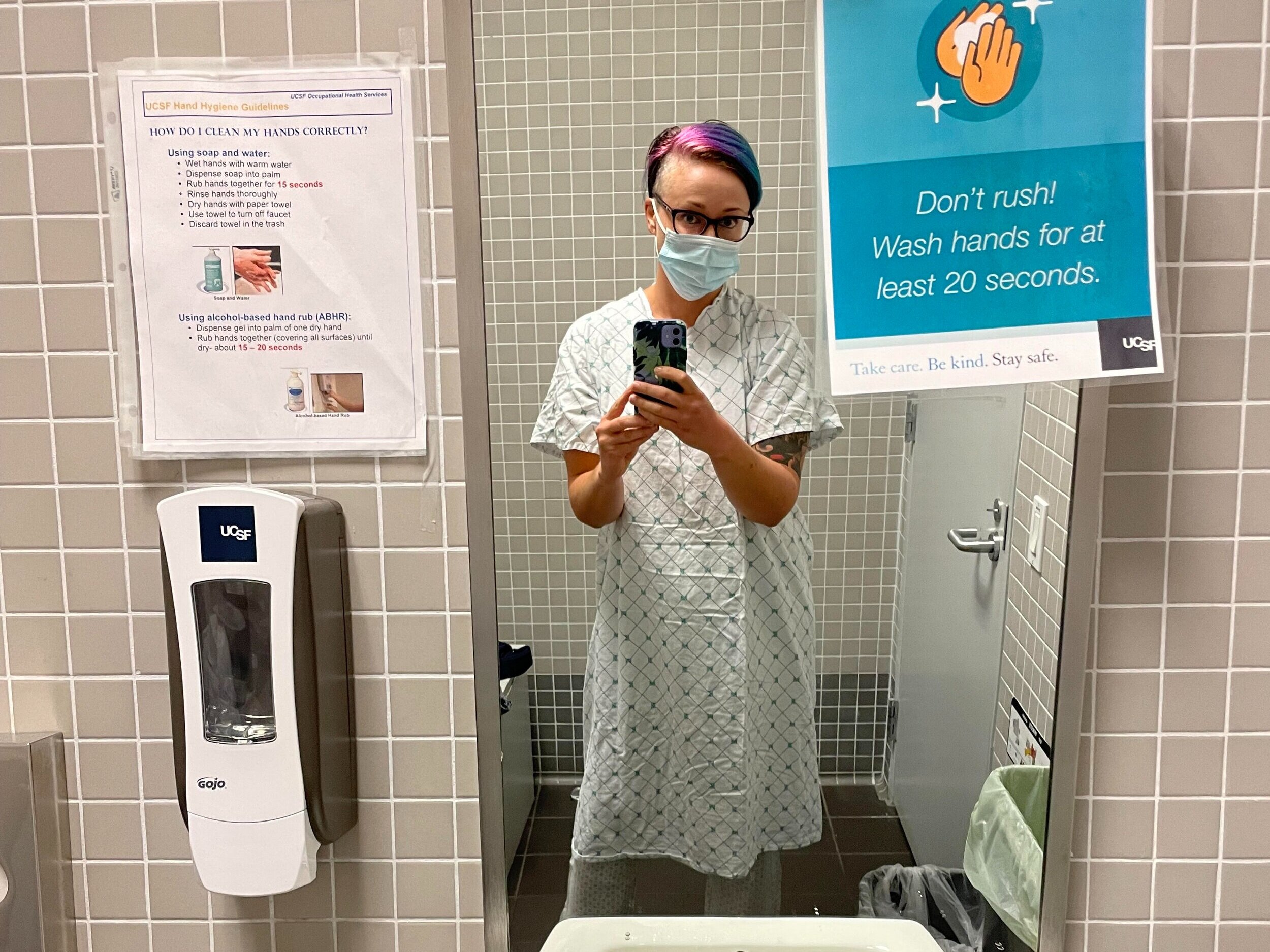Deep undercover: observing “patienthood” from a research perspective
Obligatory “mirror selfie” before going in for an MRI in September 2021.
A few updates
My surgery is scheduled for Wednesday, October 20, 2021. However, the official adventure begins the day before (October 19) where I have seven — COUNT THAT: SEVEN! — appointments as part of the pre-operative experience.
How do you really feel?
I received a few private messages last week from friends wondering if my spirits are as calm and pulled together as my last blog post makes me appear. The answer is mostly yes.
With surgery being less than 1 week away I feel as though I am running out of time to get shit done. If any of my plans get changed in the slightest I am unreasonably angry. I both feel anger toward having to pivot, but also can step outside of myself and understand why I am angry and understand this is part of dealing with a stressful moment.
I am curious how my mood may change as we near surgery day, or even the morning of surgery. Or maybe at the moment when I hug Brett as we part ways… where he heads to a waiting area across the street and I turn toward a pre-operative area where I change into a gown and my life changes once again. I think that is when I will feel most unraveled.
Deep undercover
The last week has been surreal as I am thrust back into “patienthood.” I can see the brain cancer experience through the eyes of a person who has been working on OpenNotes and learning the world of research. Through the eyes of a project lead exploring quality of life for brain cancer patients and care partners. As a new investigator working on study recruitment for genomic profiling of low grade gliomas. As the ever curious “super user” of the MyChart patient portal.
Literally everything I have learned over the last 7 years of working in healthcare applies to my current situation. I can’t help but both be in my body as “the patient” but also observing outside of myself, giggling a little and learning a lot.
Here’s one small example.
“Want to be in our study?”
As I was waiting for my surgeon’s scheduler to call me back to confirm October 20, I received a different call from a person asking if I would like to participate in a brain cancer study at UCSF and that there was no compensation for participating in the study. I said, “Sure, no problem!”
The study manager said, “I see you are scheduled for surgery on October 20…” I said, “That’s funny, that still hasn’t been communicated yet to me.” Clearly, the project manager for the study saw I was eligible as soon as I was scheduled and she jumped right on it by calling me… before I even knew my surgery was scheduled. Hilarious.
Additionally, an important part of being in the study was scheduling my own lab work at the hospital the day before surgery.
The project manager said she would send me the instructions and an “informed consent” form via email. I said, “Great, happy to fill that out. But are you telling me this study relies on me, the patient, remembering to login to MyChart to schedule my own labs? And then to remember to show up in an already busy day?”
The project manager admitted, “Unfortunately, I can’t schedule the lab work for you. You have to do it. And also, when you are there getting the lab work, remember to tell the technicians that you are doing it for research so they grab the right tubes.”
“Wow, this study relies a lot on your subjects to do the work and to get it right in order for your study to be a success,” I said. She admitted this does make the whole thing difficult.
I offered, “Next time, maybe you can offer your study participants a $50 gift card to thank them for all of their work. It might incentivize us to jump through all these hoops.” She said that sounded like a good idea but it was too late because the study protocol is already in place. 😏
At this point I wondered if I should tell her that I am not just a UCSF patient with a brain tumor, but that my work focuses on how to work with patients to identify these hurdles we face and lower the barriers to participating in research.
Do you think I told her this? Let me know in the comments. 😉
